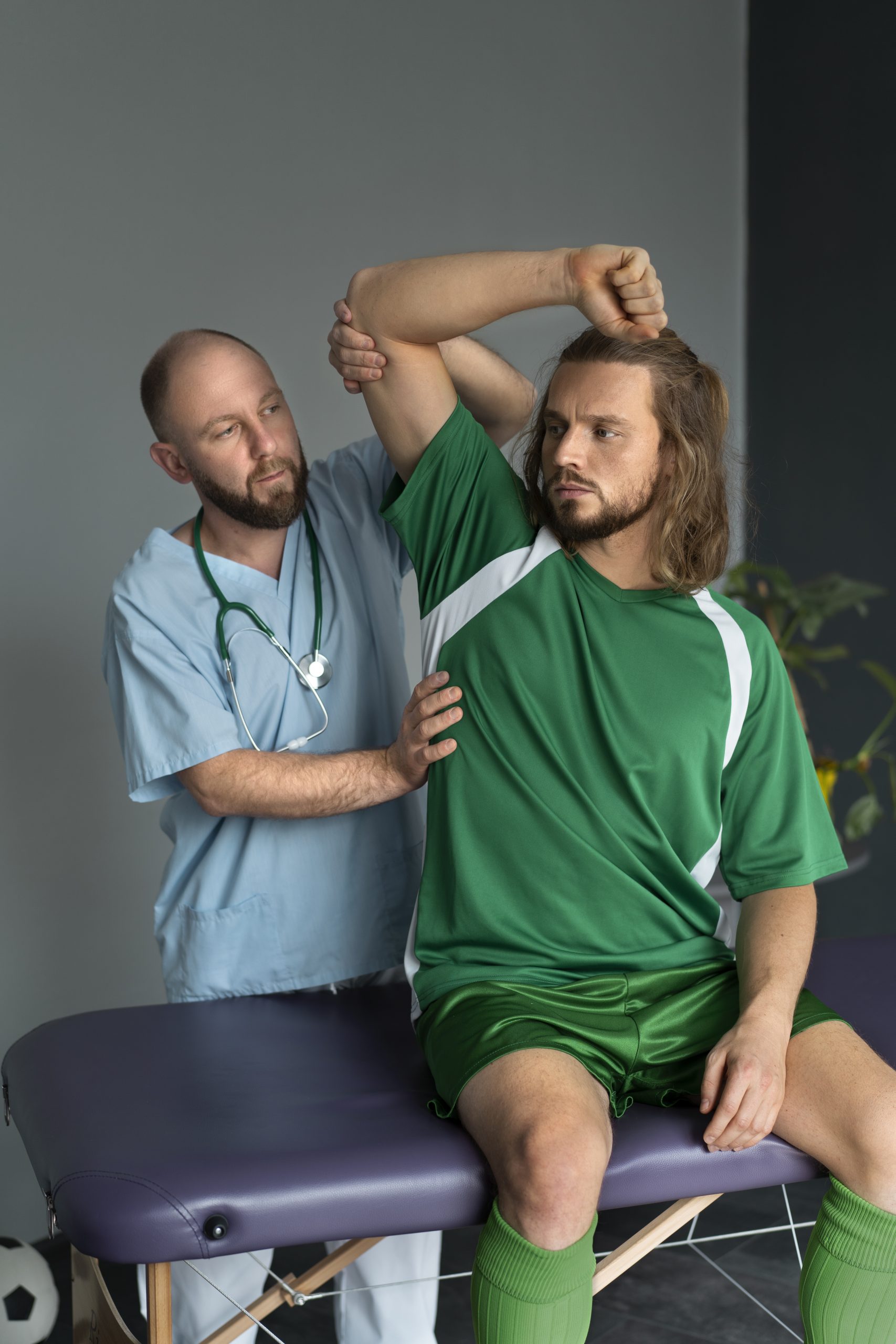Engaging in sports and physical activities is beneficial for overall health and well-being. However, these activities also carry a risk of injuries. Physical therapy plays a crucial role in preventing sports injuries by improving strength, flexibility, and body mechanics. At Spinal Recovery Center in Warren, Michigan, we offer specialized physical therapy programs designed to help athletes and active individuals stay injury-free. This article explores how physical therapy can prevent sports injuries and enhance athletic performance.
Understanding Sports Injuries
Sports injuries can occur due to various factors, including overuse, improper technique, lack of conditioning, and accidents. Common sports injuries include:
- Sprains and Strains: Injuries to ligaments (sprains) or muscles and tendons (strains) caused by overstretching or tearing.
- Tendinitis: Inflammation of the tendons, often due to overuse.
- Fractures: Broken bones resulting from impact or stress.
- Dislocations: Bones forced out of their normal position in a joint.
- Concussions: Traumatic brain injuries caused by a blow to the head.
- Shin Splints: Pain along the shin bone, commonly seen in runners.
- Runner’s Knee: Pain around the kneecap, often due to overuse.
The Role of Physical Therapy in Preventing Sports Injuries
- Strengthening Muscles and Joints
Strong muscles and joints provide better support and stability, reducing the risk of injuries.
Strengthening techniques:
- Resistance Training: Using weights, resistance bands, or body weight to build muscle strength.
- Functional Training: Exercises that mimic sports-specific movements to enhance performance and prevent injuries.
- Core Stabilization: Strengthening the core muscles to support the spine and improve overall stability.
- Improving Flexibility and Range of Motion
Flexible muscles and joints are less prone to injuries caused by overstretching and improper movement.
Flexibility techniques:
- Stretching Exercises: Dynamic and static stretches to improve muscle flexibility and joint range of motion.
- Yoga and Pilates: Incorporating these practices to enhance flexibility, balance, and strength.
- Manual Therapy: Hands-on techniques to release muscle tension and improve flexibility.
- Enhancing Body Mechanics and Technique
Proper body mechanics and technique are essential to avoid injuries during sports activities.
Body mechanics improvement:
- Biomechanical Analysis: Assessing movement patterns to identify and correct faulty mechanics.
- Technique Training: Educating athletes on proper techniques for their specific sport.
- Postural Training: Teaching correct posture to reduce strain on muscles and joints.
- Developing Balance and Coordination
Good balance and coordination help prevent falls and other injuries.
Balance and coordination exercises:
- Proprioceptive Training: Exercises to improve body awareness and balance.
- Agility Drills: Drills that enhance quick and coordinated movements.
- Balance Exercises: Using balance boards and stability balls to challenge and improve balance.
- Customized Warm-Up and Cool-Down Routines
Proper warm-up and cool-down routines prepare the body for activity and aid in recovery, reducing injury risk.
Warm-up and cool-down strategies:
- Dynamic Warm-Up: Activities that gradually increase heart rate and blood flow to muscles.
- Static Stretching: Gentle stretching after activities to improve flexibility and reduce muscle soreness.
- Foam Rolling: Using a foam roller to release muscle tightness and enhance recovery.
- Addressing Muscle Imbalances
Muscle imbalances can lead to overuse injuries and improper movement patterns.
Imbalance correction:
- Strengthening Weak Muscles: Targeting weaker muscles to restore balance.
- Stretching Tight Muscles: Lengthening tight muscles to improve flexibility.
- Functional Assessments: Identifying and addressing specific muscle imbalances.
- Education and Awareness
Educating athletes on injury prevention techniques and body awareness is key to staying injury-free.
Educational efforts:
- Workshops and Seminars: Providing information on injury prevention, proper techniques, and conditioning.
- Individual Consultations: Offering personalized advice and guidance based on the athlete’s needs.
- Resource Materials: Distributing handouts and guides on injury prevention and safe practices.
The Benefits of Physical Therapy for Athletes
Physical therapy offers numerous benefits for athletes, including:
- Injury Prevention: Reducing the risk of both acute and chronic sports injuries.
- Enhanced Performance: Improving strength, flexibility, balance, and technique to boost athletic performance.
- Faster Recovery: Aiding in quicker recovery from training sessions and minor injuries.
- Long-Term Health: Promoting overall musculoskeletal health and preventing future issues.
- Personalized Care: Tailoring programs to meet the specific needs and goals of each athlete.
Why Choose Spinal Recovery Center for Sports Injury Prevention?
At Spinal Recovery Center in Warren, Michigan, we are dedicated to helping athletes and active individuals prevent sports injuries and achieve peak performance. Our experienced team of physical therapists uses state-of-the-art techniques and personalized programs to address each athlete’s unique needs. We focus on comprehensive care that includes strength training, flexibility improvement, technique enhancement, and education.
For more information or to schedule a consultation, visit our website or call us directly. Let us help you stay injury-free and excel in your sport with expert physical therapy care.




